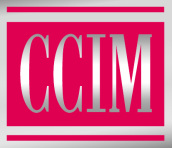Unfortunately, there is a good chance that the property vacant is not worth anywhere close to what the property was worth when they had a good tenant in place. I have seen numerous buildings worth half as much vacant as when they were leased. There can be definite value to having a tenant(s) in place.
I was recently discussing this phenomenon with a client who has a vacant building. He had a great, long term tenant in his building paying a great rent for a number of years. All of a sudden, their business model changed, and they didn’t need his building anymore so they moved out at the end of the lease. His building has now been vacant for more than 2 years while we have searched for another tenant or buyer for the property. Upon running the numbers from when the property was leased and what the property would have easily sold for, he realized he instantly lost at least $500,000 when the tenant decided not to renew the lease and vacate.
Why is this? Well first off, commercial investment properties are great when they are leased because businesses don’t like to move and risk losing clients or customers. Because of this, and with the added expense of moving, many tenants may pay a little more than market just to stay put. On the flip side though, when the property does go vacant (and they ALL do at some point), it can be months or even years to find another business to fill that vacancy.
Investors pay less for vacant properties because they have to price in anticipated vacancy (this can be very hard to determine!), holding cost (taxes, utilities, upkeep, etc.), leasing fees, and any potential tenant improvement costs associated with bringing in a new tenant. Adding these costs to a building that has no income drastically drives the value down.
So if you think selling may be in your future, it may be to your advantage to investigate selling while your commercial property is leased and has a good tenant in place. If you wait until the property goes vacant, there is a good chance you may be disappointed with the market value of an empty building.


 RSS Feed
RSS Feed